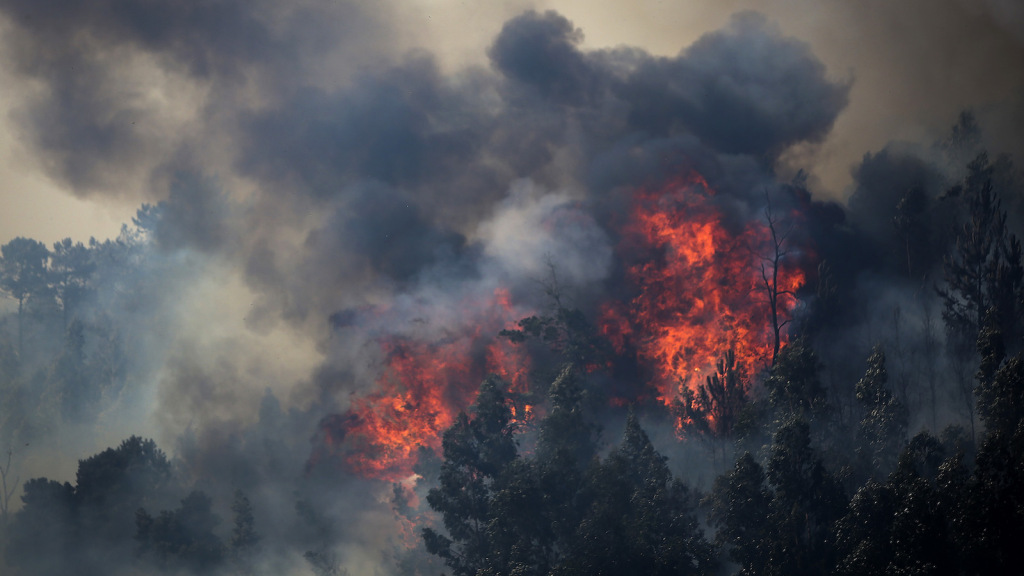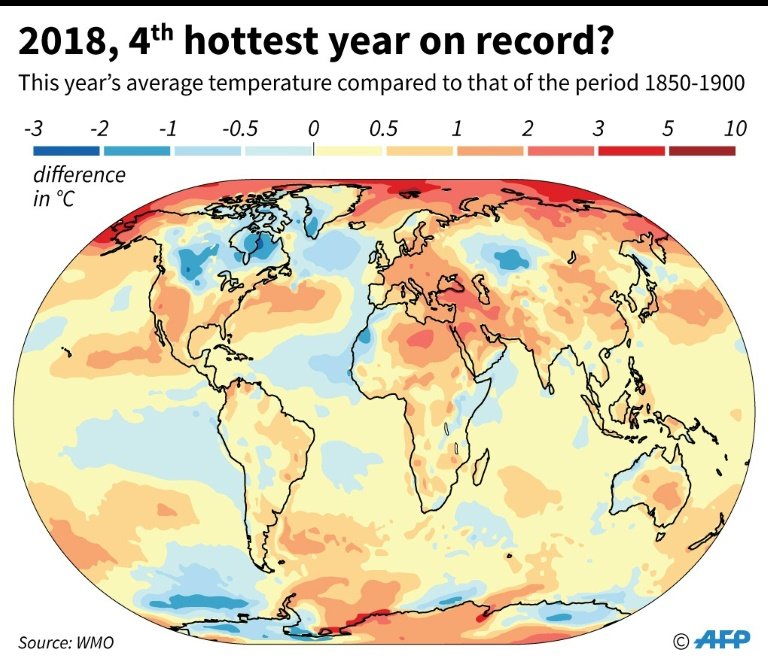2018 was fourth-warmest year
January 9, 2019 | Expert Insights

The year 2018 was the fourth-warmest on record, extending a scorching streak driven by a build-up of man-made greenhouse gases, the European Union’s Copernicus Climate Change Service said.
Background
Climate change is a variation in the statistical distribution of weather patterns, when that variation lasts for an extended period of time. Global warming is the observed century-scale rise in the average temperature of the Earth's climate system and its related effects. Multiple studies published in peer-reviewed scientific journals show climate-warming trends over the past century are likely due to human activities. In addition, most of the leading scientific organizations worldwide have issued public statements endorsing this position.
Climate change poses a fundamental threat to places, species and people’s livelihoods. Sea levels are rising and oceans are becoming warmer. Longer, more intense droughts threaten crops, wildlife and freshwater supplies. From polar bears in the Arctic to marine turtles off the coast of Africa, our planet’s diversity of life is at risk due to the changing climate.

Analysis
2018 was the fourth-warmest on record, according to the European Union’s Copernicus Climate Change Service. 2018 extends a scorching streak driven by a build-up of man-made greenhouse gases, which trap heat in Earth’s atmosphere and drive up temperatures.
Average world surface air temperatures were 14.7 Celsius (58.5 Fahrenheit) in 2018, just 0.2C off the highest, it said in the first global assessment based on full-year data. This year will also likely be hot, the scientists said.
“Dramatic climatic events like the warm and dry summer in large parts of Europe or the increasing temperature around the Arctic regions are alarming signs to all of us,” said Jean-Noel Thepaut, head of Copernicus.
Among other extremes in 2018, California and Greece suffered severe wildfires, Kerala in India had the worst flooding since the 1920s and heatwaves struck from Australia to North Africa. Around Antarctica, volumes of sea ice were at a record low at the start of 2019, according to the U.S. National Snow and Ice Data Center.
Copernicus chief scientist Freja Vamborg said 2019 would also likely be hot. “We now have a nascent El Nino — it depends partly on what happens … will it continue or die out?” she said.
The last four years have seen the highest average temperatures since records began in the 19th century — 2016 was the hottest, boosted by an El Nino event that warmed the surface of the Pacific Ocean. The Copernicus report said that concentrations of heat-trapping carbon dioxide in the atmosphere rose to a new record of 406.7 parts per million (ppm) in 2018 from 404.1 in 2017, stoked largely by human burning of fossil fuels.
The report also said that the average global temperature in the past five years was 1.1 C (2.0 F) above pre-industrial times. According to a U.N. climate report last year, temperatures will rise 1.5 C above pre-industrial times by midcentury on current trends — bringing in the prospect of even more extreme weather.
That U.N. report said governments would have to make unprecedented cuts in greenhouse gases to keep temperatures below the 1.5 C rise, which is the toughest goal set in the 2015 Paris Agreement. Almost 200 nations agreed on a “rule book” to govern the Paris accord in talks in Poland last month, even though critics said it was insufficient to prevent dangerous climate change. The Paris accord seeks to end the fossil fuel era this century by shifting to cleaner energies such as wind and solar power. U.S. President Donald Trump plans to pull out and instead promote the U.S. fossil fuel industry.
The Copernicus report confirms projections by the U.N.’s World Meteorological Organization (WMO) in November that 2018 would be fourth-warmest. The WMO will issue its own estimate for 2018 temperatures in coming weeks, also comprising data compiled by U.S., British and Japanese agencies.
Assessment
Our assessment is that the increase in temperatures will result in greater disruption of basic services, food stocks and access to potable water. We believe that the common temperature reduction target agreed in the Paris Agreement is a goal that all countries should reaffirm, in order to achieve in their respective deadlines. The withdrawal of the United States may represent a lack of confidence in the agreement, but it is worthwhile to remember that regardless of whether any country is part of the agreement or not, the negative impacts of climate change transcends political borders.








Comments